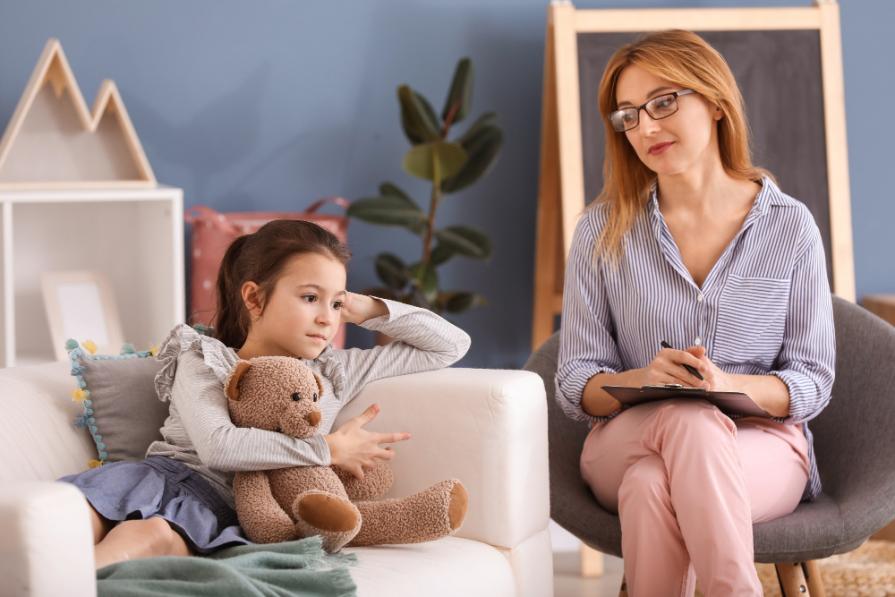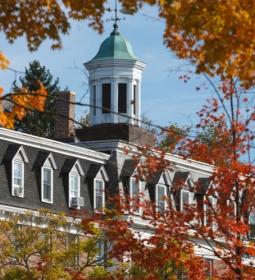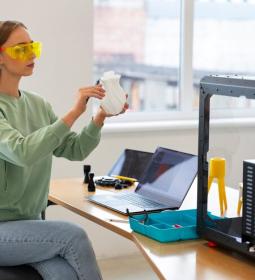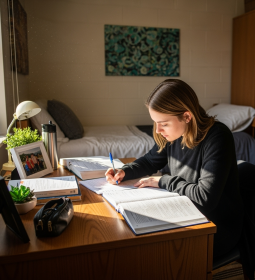Generations of boomer and millennial parents are still wondering: who is a school psychologist and what does he do all day?
Today a school psychologist is a specialist with full-fledged labor functionality, who is respected and interested by colleagues and students. Let's analyze the principle of their work using the example of psychologists working in foreign boarding schools. In most schools abroad, the services of a psychologist are not just a student's right, but a mandatory component of his curriculum. Specialists conduct lectures and seminars on psychological well-being on a regular basis: in this way, the administration tries to preventively solve problems with depression, stress, etc.

Functions and Work Tasks of School Psychologists in Foreign Boarding Schools
School psychologists are private consultants, group therapists, and sociologists all rolled into one. Such specialists have to work in all approaches at once, have time to communicate with children, teachers, administration and parents. In their work, school psychologists use tools and techniques such as tests, questionnaires, interviews, role-playing games, etc. They can't use a template model for all students, parents, and coworkers.
The main directions and functions of their workflow include:
- Individual psychological support, assistance to children and adolescents in overcoming stresses associated with study, interpersonal relationships. As part of this format, psychologists conduct consultations, help to cope with anxiety, depression and other emotional difficulties.
- Group work and training. Specialists conduct classes for several people at the same time. As a rule, such trainings and sessions are aimed at developing social skills, understanding the basics of stress management, working with self-esteem and conflicts.
- Helping international students adapt to a new culture, language, and daily routine. Psychologists also provide support for their family if necessary.
- Work with the teaching staff, advising teachers on the behavior and psychological state of students, organizing trainings and seminars on psychopedagogy.
- Organization of events to prevent stress, suicidal ideation, bullying and other problem situations.
- Advising parents on the upbringing, behavior of children and support for their educational process.
- Keeping records of group and personal classes, saving (and providing) all documentation.

Specialists of boarding schools abroad regularly take advanced training courses, participate in professional forums, seminars, congresses. It is impossible to get a job in a foreign educational institution without an appropriate diploma of higher education, all candidates are carefully checked, especially if their diploma was obtained in another country. In some countries, even experienced foreign specialists must pass an exam for compliance with the declared level of qualification, otherwise they will not be allowed to work at the school.
Work schedule and office of the school psychologist in the boarding school
Psychologists work, as a rule, in a standard schedule, which is adhered to by the entire school staff. The most common option is from 8:00 to 17:00, from Monday to Friday, but in some cases, working hours and days may vary, for example, if the school is a boarding school and it declares round-the-clock assistance from a psychologist-consultant at the request of students or their parents. Sometimes this service is implemented offline, and in other cases through online chats and other applications.
Usually, psychologists at boarding schools abroad try to plan their working day in blocks, because without a clear schedule, their workload will be uneven. Personal consultations with children, teachers and parents are most often set in the afternoon, when classes are over or there is a long break between them. During the main lessons before lunch and later in the day, psychologists can conduct group trainings or lectures, which are included in the basic curriculum of foreign students.

The workspace of a school psychologist can be different - it all depends on the scale of the school, its financial security and the specific functionality of the specialist. But, as a rule, all psychologists' offices in boarding schools are cozy and comfortable spaces in which children feel calm and can trust the person working here. Classic furniture for a psychological office includes: an upholstered armchair or sofa for consultations, a chair for a psychologist, a small table. Specialists try not to overload the space with colorful and massive things that can distract schoolchildren during consultations, so most often pleasant, unobtrusive colors, abstract paintings or posters are used in the décor. However, in some cases, the psychologist, on the contrary, can deliberately place bright accents in the office if it is necessary for more effective therapy – for example, when children with special perceptions or increased anxiety live and study in a boarding school: such children are more comfortable focusing on individual subjects in order to focus on their words and thoughts.
In addition to furniture and design details, in the offices of psychologists of foreign boarding schools you can find books, games, toys, visual materials and manuals. The auditoriums themselves are tried to be located in remote corners of the building to create an even greater atmosphere of privacy and security.
7 reasons why schoolchildren turn to psychologists in boarding schools

There can be many reasons to contact a school psychologist - here are just a few of the most common reasons:
- Difficulties with adaptation when moving to another city or country, homesickness, painful separation from parents.
- Fear of failure or poor academic performance due to overload of study and preparation for exams.
- Conflicts, bullying or harassment.
- Feeling lonely, sad, or depressed.
- Lack of support or misunderstanding from parents.
- Lack of motivation to study.
- Self-identification and issues of growing up, including the dilemma of choosing a profession or future career.










